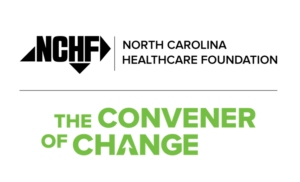“PolicyMap is really helpful in removing the lag between identifying sources for publicly available data and gaining insights through the identification of service gaps in specific geographies.”
– Miriam Tardif-Douglin, Senior Program Manager, Research and Policy at NCHF
– Miriam Tardif-Douglin, Senior Program Manager, Research and Policy at NCHF
See how PolicyMap can help your organization.
Challenge
Representing its state’s individual and multi-hospital health systems, the North Carolina Healthcare Association advocates for expanding care and coverage across North Carolina. The Association’s non-profit arm, the North Carolina Healthcare Foundation has multiple initiatives including CaroNova, which is a bi-state team of healthcare professionals and strategists that works to align leaders across North Carolina and South Carolina in pursuit of better and more equitable systems of care.To identify and better serve communities, NCHF needed a more efficient way to source and visualize geographic data and locate areas in need of intervention. NCHF wanted to use data both to bridge gaps in healthcare service and evaluate the effectiveness of its efforts.

Solution
PolicyMap complements NCHF’s efforts toward equitable and accessible healthcare. With robust demographic, health, and SDOH data from PolicyMap, NCHF can layer multiple indications, including diabetes prevalence, poverty rates, and race, on a map to prompt discussions on health outcomes and disparities.NCHF uses PolicyMap to make data-driven decisions and measure the impact of its healthcare initiatives. For example, one of the NCHF’s initiatives through CaroNova demonstrated the impact of an opioid stewardship and treatment resource library by leveraging PolicyMap to examine opioid-related metrics and visualizations of the geographic distribution of resource utilization. A similar approach was used to also map locations of behavioral health services in the state of SC, overlaid with demographic data.
Currently, NCHF is working on a project that engages community members to mitigate transportation-related causes of health disparities; PolicyMap has already delivered crucial insights. For the rural, historically marginalized community in which this project takes place, NCHF used PolicyMap to layer data, such as on car ownership, with rates of residents reporting fair or poor health. When NCHF showed the map during a local meeting, community members were visibly excited to see their personal experience reflected in the data.
Example of how NCHF used PolicyMap: NCHF relied on PolicyMap data and visualizations for an activity completed with networks participating in a grant funded by The Duke Endowment (TDE). Click to read the activity instructions and view how NCHF used PolicyMap to visualize diabetes, race, poverty, and food insecurity in North Carolina and South Carolina.